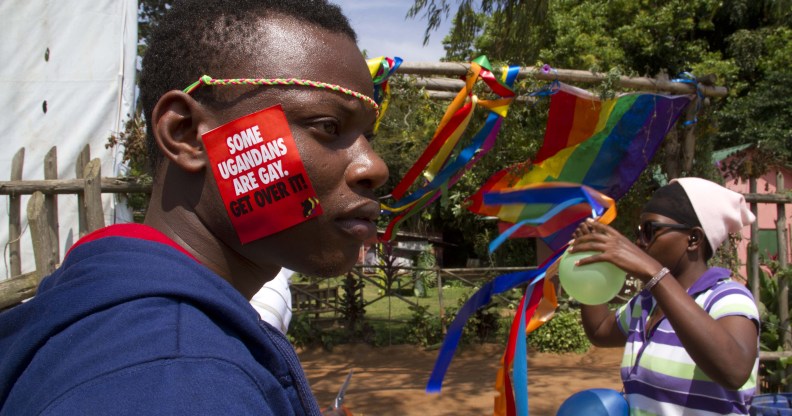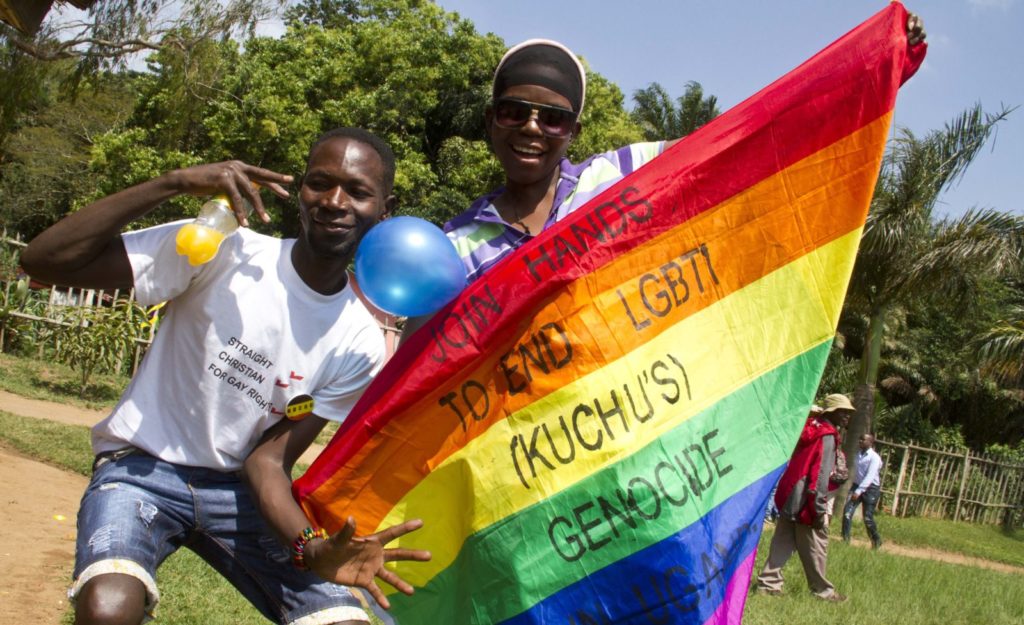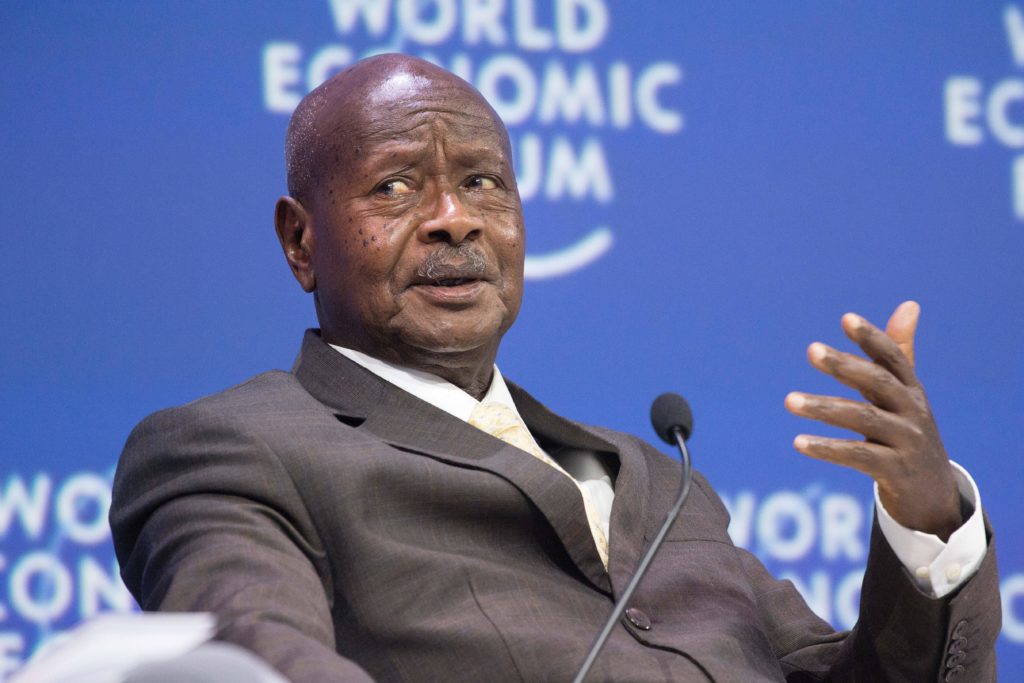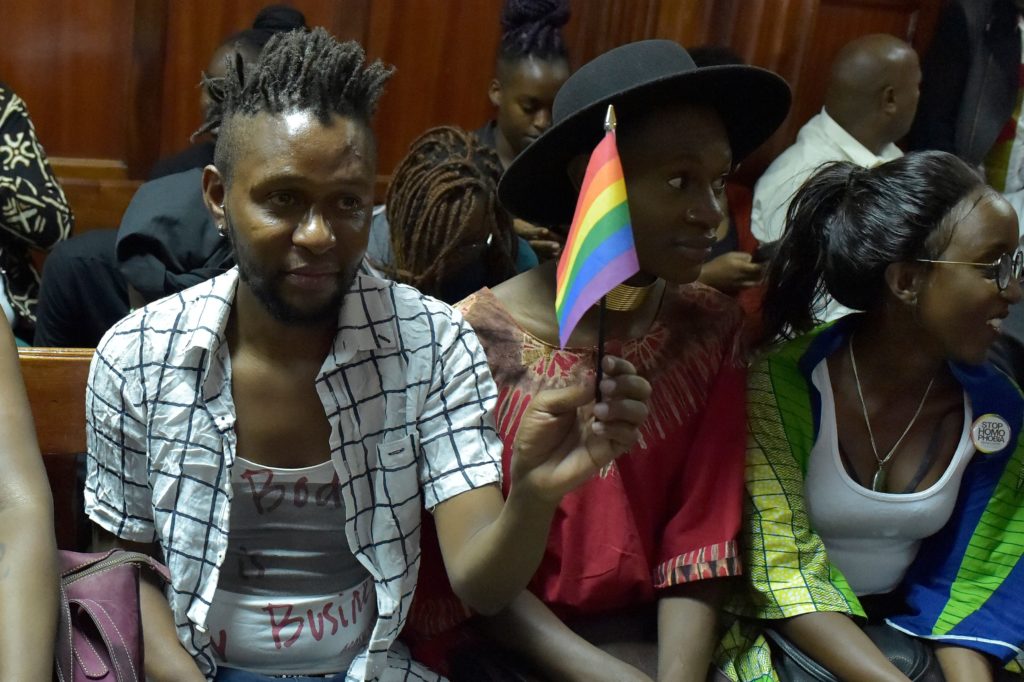Uganda just announced a vile ‘kill the gays’ law which will see homosexuals put to death

ISAAC KASAMANI/AFP/Getty
Uganda has announced plans to impose the death penalty on gay people in a move by the government that has stunned LGBT+ and human rights activists.
The bill – colloquially called ‘Kill the Gays’ in the country – was thwarted on a technicality five years ago.
But ethics and integrity minster Simon Lokodo told Reuters that the government is thawing the bill to curb the rise of “unnatural sex” and could become a reality for the east African country in just a couple months.
Uganda’s current president, Yoweri Museveni, first signed the draconian Anti-Homosexuality Bill in February 2014.
What would the bill mean for GBT+ Ugandans?
Not only does the revamped bill mandate the death penalty for gay people, but it would also criminalise anyone involved in its “promotion and recruitment”.
This would severely intensify the current penal code which enforces life imprisonment for gay sex.
“Homosexuality is not natural to Ugandans, but there has been a massive recruitment by gay people in schools, and especially among the youth, where they are promoting the falsehood that people are born like that,” Lokodo said.
“Our current penal law is limited. It only criminalises the act.

Ugandan men hold a rainbow flag reading “Join hands to end LGBTI genocide”. (ISAAC KASAMANI/AFP/Getty)
“We want it made clear that anyone who is even involved in promotion and recruitment has to be criminalised. Those that do grave acts will be given the death sentence.”
Lokodo confirmed that the bill is backed by Museveni and will be re-tabled in the coming weeks. While its authors aim to have it signed into law before the end of the year.
The minister has long been a thorn in the side of LGBT+ activists – Lokodo ordered police to raid and shut down a meeting of gay rights campaigners in 2015 in just one example of many state crackdowns on Pride events and activations.
Moreover, the move comes just days after the Museveni administration’s security minister called LGBT+ “terrorists” and a gay activist died after his skull was pierced with machetes in a homophobic attack in his home.
‘Kill the gays’ bill’s re-introduction is ‘destined to fail’, says LGBT+ activists.
Advocates on the ground and human rights groups expressed an array of emotions, both fear of what the bill’s enforcement could inflict on the community as well as a lack of surprise at the news itself.
Edwin Sesange of the African Equality Foundation told PinkNews: “The re-introduction of the infamous anti-gay bill in Uganda is nothing other than an illusive emotional political strategy to play both the Ugandan public and the western world.

Yoweri Museveni, who has been president of Uganda since 1986. (RODGER BOSCH/AFP/Getty Images)
“However, the strategy is destined to fail because the public is moving away from the politics of deception.”
“The current Uganda government is so desperate to reduce the growing popularity of [opposition candidate] Bobi Wine and build resentment plus scepticism among both the Uganda public and the western world.
“The government through the defence minister have already declared that Bobi Wine is supported by western gay people, however that strategy was futile.”
To the advocate, the bill is a “campaigning strategy for the forthcoming general elections in 2021” where ministers will force Wine to “take a stand on the bill, hoping to create a backlash for the opposition.”
He added: “Fortunately, both the Ugandan public and the western world are much aware of these political games by the régime and they are not willing to become victims of this propaganda anti-gay bill,” he said.
LGBT+ Ugandans are ‘suffering because of our sexuality’.
The Human Rights Defenders also slammed the move, advising that LGBT+ Ugandans “be extra careful from here onwards.
“Be each other’s eye. We are suffering just because of our sexuality, but one day, we shall overcome.”
This is a surreal scene considering that queer relations were once commonplace and accepted in pre-colonial Uganda.

An LGBT activists holds a rainbow flag as he attends a court hearing in Kenya. (SIMON MAINA/AFP/Getty Images)
Change in Africa has been spotty and sluggish, where pro-LGBT legislation goes vastly against the dominant current, activists argue.
This year, Botswana overturned its federal ban on homosexuality just weeks before Kenyan courts called to uphold them.
The two judicial judgments underscore the vast differences in Africa when it comes to LGBT+ people, where colonial histories and present day world-views collide and clash.

